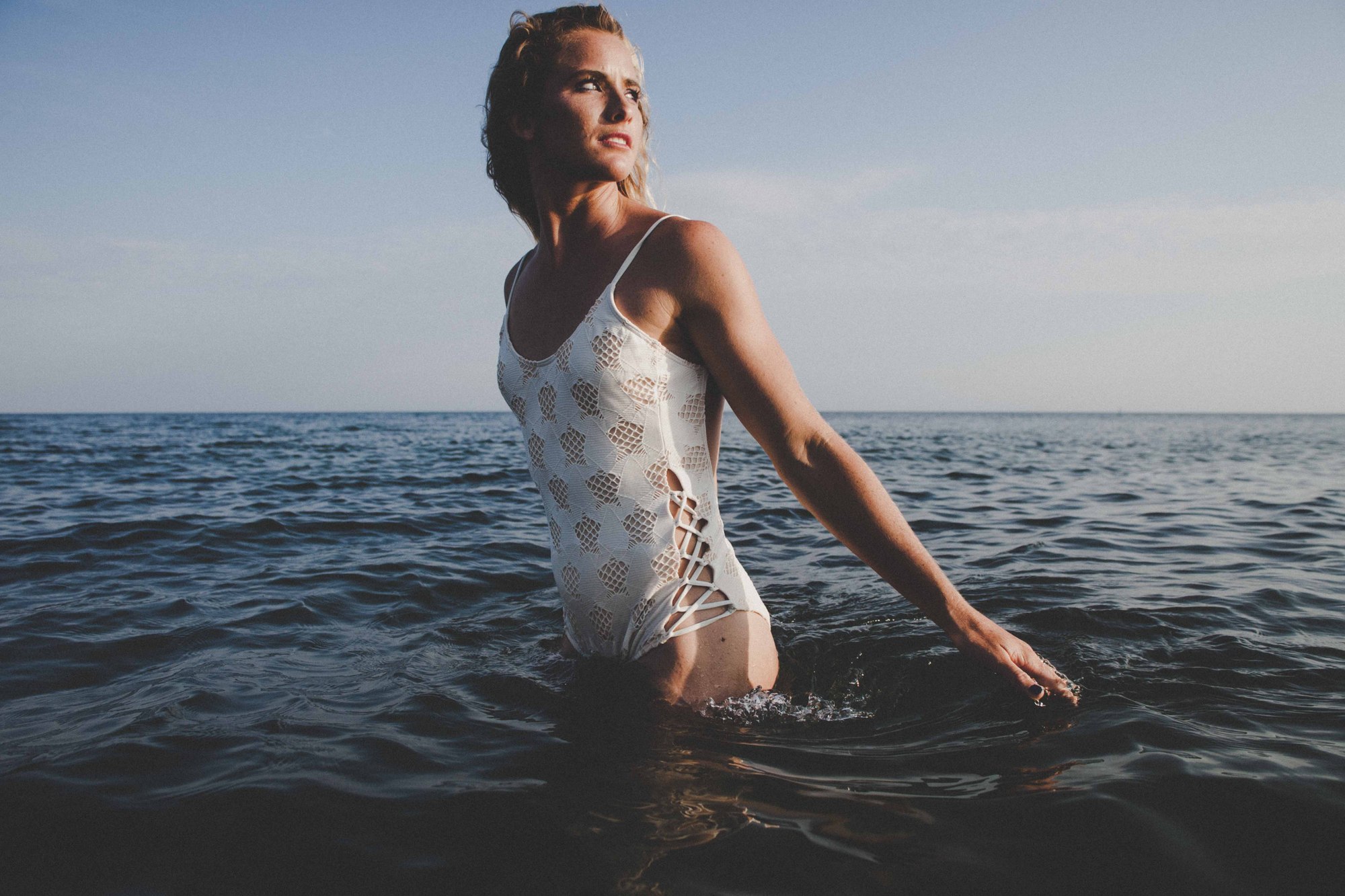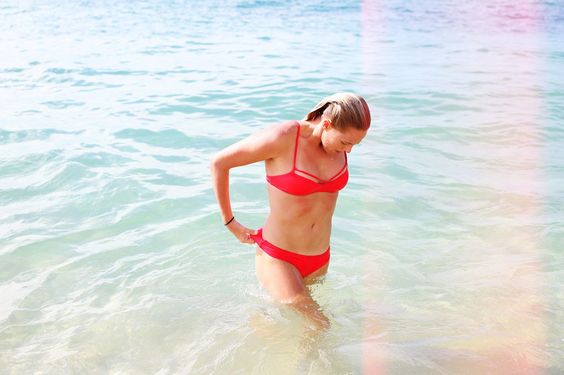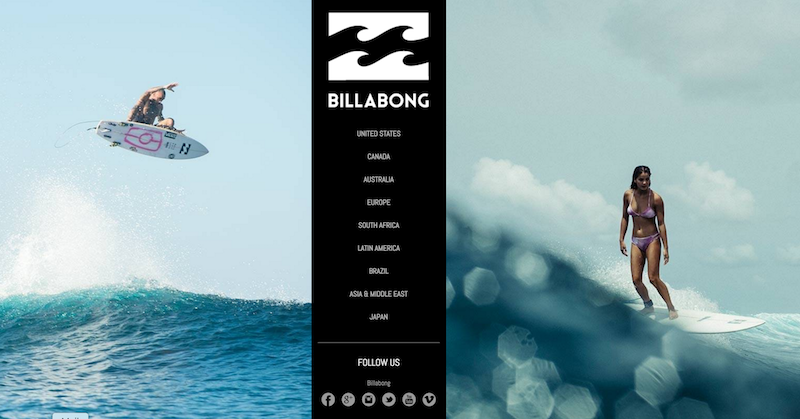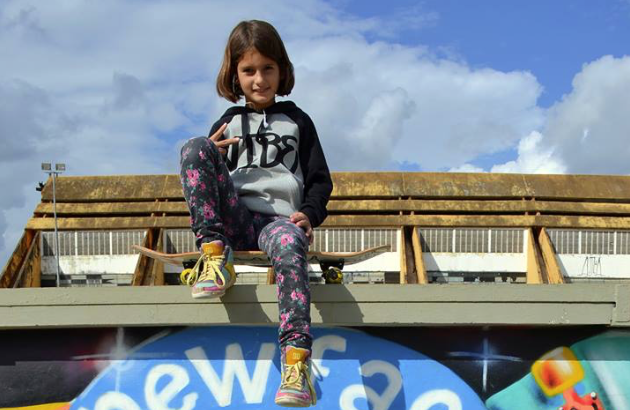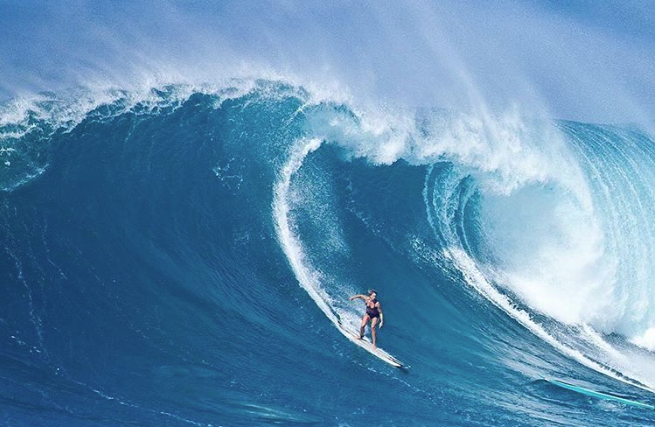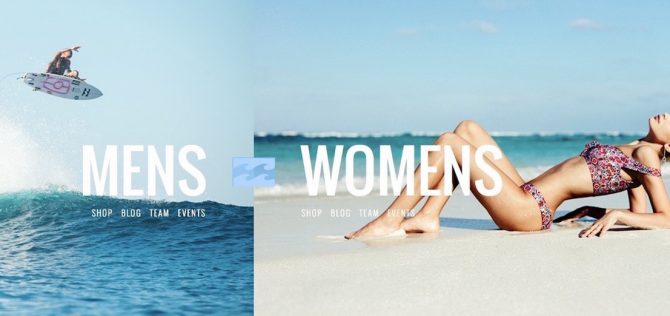
Billabong found themselves in some trouble recently, after they used a contentious image as their main website header. The photo above, taken from their website, caused outrage online because of it’s depiction and sexualisation of Billabong women.
Whilst the female sexualisation issue is always an ongoing debate within the action sports industry, Billabong’s mistake brought it to the forefront of the public’s attention once more. Freelance writer Karen Knowlton was not one to let Billabong off the hook, taking to Medium to air her angers in an article titled ‘F*ck You Billabong. Seriously, f*ck you‘.
Knowlton notes how unapologetically sexualised the image is; it doesn’t even pretend to show an athlete surfing, or having fun and being goofy on the beach whilst they happen to be wearing a bikini. It clearly shows us how Billabong views their female athletes and consumers. The men are seen as hardcore surfers whilst the women are objects of lust and desire. They are sending the message that transitioning from a beach babe to a badass ripper is never going to happen.

